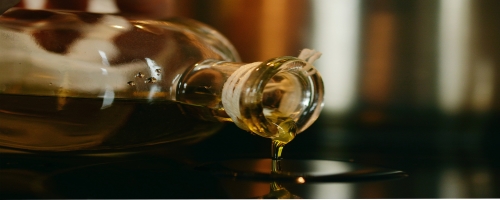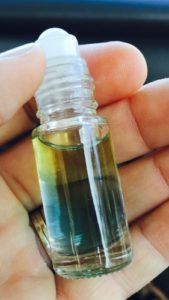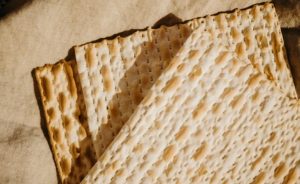 When it comes to the topic of Anointing Oils in Judaism, many of us have a lot of questions, which is understandable considering all the confusion and controversy surrounding the subject. That’s why we decided to do a bit of digging so we could get some answers! However, before we start, please keep in mind that some of the information presented may not be relevant for anyone who isn’t Jewish since this article will be focusing on the concept of Anointing Oils from a purely Jewish standpoint. Let us begin!
When it comes to the topic of Anointing Oils in Judaism, many of us have a lot of questions, which is understandable considering all the confusion and controversy surrounding the subject. That’s why we decided to do a bit of digging so we could get some answers! However, before we start, please keep in mind that some of the information presented may not be relevant for anyone who isn’t Jewish since this article will be focusing on the concept of Anointing Oils from a purely Jewish standpoint. Let us begin!
What was Anointing Oil used for and why are there so many issues with it now?
Good question. Despite being a somewhat tricky topic to talk about, Anointing Oils are absolutely fascinating. In the ancient world, perfumed oils were pretty common, which is not very surprising considering the lack of deodorant and regular bathing back then. While most scented oils were used for medicinal or cosmetic purposes, the Torah talks about a special oil that was specifically prepared for spiritual use: Shemen HaMishchah, the Anointing Oil made for consecration. Mentioned repeatedly, the Shemen HaMishchah is described as a fragrant ointment made primarily from olive oil and sweet-smelling spices like myrrh, cinnamon, cassia, and other ancient perfumes.
 The job of preparing the Shemen HaMishchah was given to Moshe, who was instructed to take the ingredients God prescribed and blend them together using the methods of a perfumer to create a sacred substance for anointing priests, prophets, ritual vessels, and later kings to sanctify them for service. This oil was so sacred, that when describing the Shemen HaMishchah, the Torah not only gave careful instructions on how to make it, it also provided harsh warnings against its desecration, including how consequential it would be for any individual who disregarded these precautions. The Torah explicitly forbids anyone to replicate Shemen HaMishchah using the exact formula or to misuse it on someone who wasn’t meant to be anointed. It was to be made only once and never again, and this is why there exists so much controversy surrounding the appropriateness of recreating this sacramental oil for modern-day spiritual use.
The job of preparing the Shemen HaMishchah was given to Moshe, who was instructed to take the ingredients God prescribed and blend them together using the methods of a perfumer to create a sacred substance for anointing priests, prophets, ritual vessels, and later kings to sanctify them for service. This oil was so sacred, that when describing the Shemen HaMishchah, the Torah not only gave careful instructions on how to make it, it also provided harsh warnings against its desecration, including how consequential it would be for any individual who disregarded these precautions. The Torah explicitly forbids anyone to replicate Shemen HaMishchah using the exact formula or to misuse it on someone who wasn’t meant to be anointed. It was to be made only once and never again, and this is why there exists so much controversy surrounding the appropriateness of recreating this sacramental oil for modern-day spiritual use.
However, there may also be a potential loophole for those who are still interested in modern Anointing Oils hidden within the specific wording of this restriction.
So what’s the (potential) loophole? Well…
Depending on how literally you choose to interpret it, one can argue that since it’s impossible to know whether our modern-day Anointing Oils are truly accurate replicas of the Torah’s Shemen HaMishchah, there’s a possibility there might not be any legitimate objection against using an Anointing Oil reproduction that is simply based upon the biblical version. After all, there are still things we haven’t yet figured out about the making of Shemen HaMishchah. While scholars and rabbinical authorities throughout the centuries have concluded that they have positively identified the majority of the ingredients used in Anointing Oil, there is still a lot of disagreement around the identity of what the Torah calls Kaneh Bosem. Some argue that it was a type of sweet-smelling cane plant or grass, likely calamus or a variety of lemongrass, while others postulate Kaneh Bosem to be cannabis or cinnamon bark.
Of course, this attitude won’t satisfy everybody, and that’s fine. We’re not here to convince anyone to use Anointing Oils spiritually since there are plenty of other benefits to modern Anointing Oils that you can choose to explore without any halakhic ramifications.
So how can a Jew use modern Anointing Oil?
 When you take into consideration the composition of Anointing Oils, an alternative approach to modern Anointing Oils would be to use them in non-spiritual ways since there’s no halakhic issue with using scented oils as long as there is no religious motive behind it. This is an important point to mention because a significant aspect of religious observance in Judaism is intent. If one performs a mitzvah with the proper motivation, then they fulfill the mitzvah fully. The same rules, in effect, apply here.
When you take into consideration the composition of Anointing Oils, an alternative approach to modern Anointing Oils would be to use them in non-spiritual ways since there’s no halakhic issue with using scented oils as long as there is no religious motive behind it. This is an important point to mention because a significant aspect of religious observance in Judaism is intent. If one performs a mitzvah with the proper motivation, then they fulfill the mitzvah fully. The same rules, in effect, apply here.
Therefore, if one is a Jew, it would be improper to use Anointing Oil to anoint oneself spiritually since the Torah forbids it; however, there is nothing wrong with using Anointing Oils for therapeutic reasons.
Since Anointing Oils are made from naturally beneficial ingredients, Anointing Oils can be great for cosmetic or medicinal use and can be applied topically to alleviate a range of emotional and physical conditions, so try swapping out your generic massage and aromatherapy oils, and experience stress relief with a biblical twist!
To learn more about the specific therapeutic benefits of modern Anointing Oils, check out our Decoding Anointing Oil Guide, and head over to our Top 10 Anointing Oils from the Land of Israel Gift Guide to find the perfect anointing oil for your own use!








